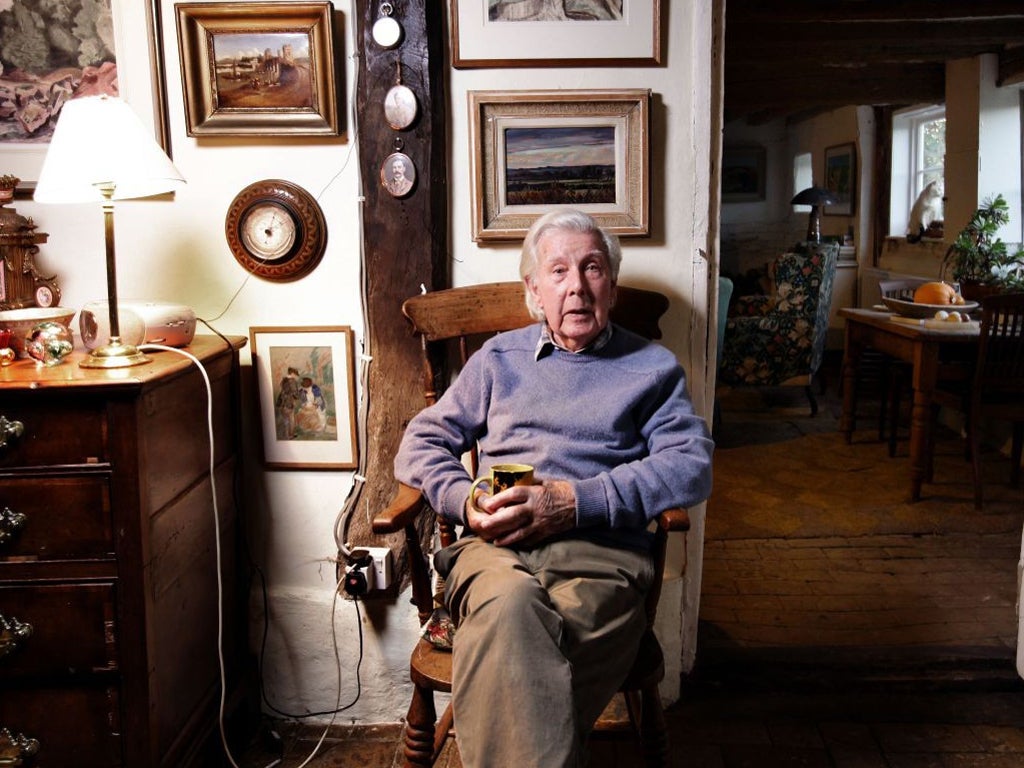
The biographer of Ronald Blythe, the author of Akenfield who has died aged 100, has told how the writer’s ability to form relationships was affected by being gay at a time when homosexuality was illegal.
Ian Collins said Blythe’s achievements were “far greater than most people realise because of the poverty of his early life” and because he was gay.
“Until he was 45, when the ban on homosexuality was lifted in 1967, he was deemed a criminal, which militated against stable relationships,” Collins, who was also one of Blythe’s carers, told The Independent.
“He was a confessional writer to a degree but he kept quite a lot back. He endured a lot of hardship but didn’t dwell on his own difficulties, he preferred to celebrate life.
“He never talked about specifics in the homophobic 1950s, or anything that would sound like a hard-luck story. Although he was never in love with someone, his life was mostly about love.”

Akenfield, a portrait of rural life in Blythe’s native Suffolk in a bygone age, was hailed as a classic when it was published in 1969. Sir Peter Hall turned it into an award winning movie in 1975.
Little is known about Blythe’s private life. He became friends with American novelist Patricia Highsmith in the 1960s and said of her: “I admired her enormously. She was very strange. She was a lesbian but at the same time she found men’s bodies beautiful.”
They reportedly slept together after a Paris literary event, leading Blythe to observe to a friend they had both been curious “to see how the other half did it”.
Collins said Blythe’s “gentleness was often mistaken for weakness” – when in fact he was a “toughie at heart”.
He added: “But he also knew a danger within himself: the key thing for him was always the writing because it was so hard-won.”
Although he had relationships he said: “If I had lived with someone I knew that in the end I would be the one washing the socks.”
Collins said this posed a “particular problem” for Blythe “because he never had a washing machine, car, mobile phone or computer”.
Suffolk-born Blythe didn’t even possess a torch “because he had wonderful nocturnal vision going back to his shepherd ancestors. He loved night walking, looking at the stars, talking to his owls and the badgers in his garden”.
Collins told BBC Radio 4 Today that Blythe was “a fantastic human being”.
“He thought there was God in everyone. He thought his fellow man and woman heroic, faintly comic and endlessly lovable.”
He had been born into incredible poverty, left school at 14 and learned everything in public libraries.
“There would have been no Ronald Blythe without public libraries. It was the making of him because he was untrained and unconstrained. His voice was pure and original. He carried his erudition so lightly. He could time travel within a single sentence and go from personal to local to global.
“Reading his books is like being on a magic carpet, you feel the exhilaration of being alive. He was immensely positive and appreciative. Virtually the last words he said were ‘thank you’. He was interested in everything, including the business of dying.”
Blythe wrote for the Church Times from 1993 to 2017, but Collins claimed the Church of England ‘exploited’ the writer.
‘He was deeply attached to the Church of England and a lay reader in three parishes on the Essex - Suffolk border.
‘He had to work very hard as lay reader for three parishes on the Essex-Suffolk border, and kept seeing vicars of sixty through retirement when he was seventy, eighty and eight-five. He finally retired when he was 95.
‘He was rather exploited by the Church of England but ultimately it was the making of him because his weekly column in the Church Times stretched to more than a million words and is the best of his writing, light as air and full of philosophy.’







